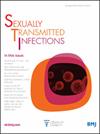抗逆转录病毒疗法中的低水平艾滋病毒病毒血症管理:系统回顾和荟萃分析
IF 3.6
3区 医学
Q2 INFECTIOUS DISEASES
引用次数: 0
摘要
目标:随着抗逆转录病毒疗法(ART)的发展,HIV-1 的治疗取得了重大进展,但挑战依然存在,其中包括低水平 HIV-1 病毒血症(LLV)。LLV 情况复杂,文献中的定义各不相同,反映了临床解释的不确定性。人们对 LLV 的基本机制产生了疑问,LLV 是否意味着病毒的持续复制,还是源于其他因素。本研究旨在系统回顾 LLV 的管理策略,为最佳临床方法提供启示。方法 在 MEDLINE、EMBASE、Cochrane 图书馆、Web of Science 和加拿大卫生药物和技术局检索 LLV 管理的相关文献。我们纳入了 2004 年至 2024 年间发表的研究,这些研究评估了抗逆转录病毒疗法的调整、基因型耐药性检测、依从性评估、治疗药物监测、慢性合并感染检测以及通过 HIV DNA 定量评估病毒库等干预措施。在可行的情况下进行了元分析。结果 系统综述确定了 48 项符合条件的记录。研究结果表明,支持抗逆转录病毒疗法方案调整对实现 LLV 感染者病毒学抑制效果的证据有限。不过,对基因型耐药性检测进行评估的研究显示,耐药性相关突变与 LLV 期间的病毒学抑制之间存在显著关联。坚持抗逆转录病毒疗法是决定治疗效果的关键因素,干预措施有望实现病毒抑制。治疗药物监测在管理 LLV 方面的临床效用仍无定论。在随访时间安排、并发慢性感染管理以及评估 LLV 管理中的炎症标志物方面发现了文献空白。结论 虽然抗逆转录病毒疗法的调整可能无法持续达到病毒学抑制效果,但基因型耐药性检测可为治疗结果提供见解。坚持抗逆转录病毒疗法是一个关键因素,需要采取有针对性的干预措施。然而,要阐明治疗药物监测和其他管理策略的临床效用,还需要进一步的研究。这项研究强调了持续开展研究以完善治疗方法并改善 LLV 患者治疗效果的重要性。PROSPERO 注册号为 CRD42024511492。与该研究相关的所有数据均包含在文章中或作为补充信息上传。本文章由计算机程序翻译,如有差异,请以英文原文为准。
Managing low-level HIV viraemia in antiretroviral therapy: a systematic review and meta-analysis
Objective HIV-1 management has advanced significantly with antiretroviral therapy (ART), yet challenges persist, including low-level HIV-1 viraemia (LLV). LLV presents a complex scenario, with varied definitions in the literature, reflecting uncertainties in its clinical interpretation. Questions arise regarding the underlying mechanisms of LLV, whether it signifies ongoing viral replication or stems from other factors. This study aimed to systematically review strategies for LLV management, providing insights into optimal clinical approaches. Methods MEDLINE, EMBASE, Cochrane Library, Web of Science and Canadian Agency for Drugs and Technologies in Health were searched for relevant literature on LLV management. We included studies published between 2004 and 2024, assessing interventions such as ART modification, genotypic resistance testing, adherence assessment, performing therapeutic drug monitoring, testing for chronic coinfections and assessing the viral reservoir via HIV DNA quantification. Meta-analyses were conducted where feasible. Results The systematic review identified 48 eligible records. Findings indicated limited evidence supporting the effectiveness of ART regimen modification in achieving virological suppression among individuals with LLV. However, studies assessing genotypic resistance testing revealed a significant association between resistance-associated mutations and virological suppression during LLV. Adherence to ART emerged as a critical determinant of treatment efficacy, with interventions showing promise in achieving viral suppression. The clinical utility of therapeutic drug monitoring in managing LLV remained inconclusive. Gaps in the literature were identified regarding follow-up scheduling, managing concurrent chronic infections and assessing inflammatory markers in LLV management. Conclusions While ART modification may not consistently achieve virological suppression, genotypic resistance testing may offer insights into treatment outcomes. Adherence to ART emerged as a crucial factor, necessitating tailored interventions. However, further research is needed to elucidate the clinical utility of therapeutic drug monitoring and other management strategies. The study highlights the importance of ongoing research to refine therapeutic approaches and improve patient outcomes in LLV management. PROSPERO registration number CRD42024511492. All data relevant to the study are included in the article or uploaded as supplementary information.
求助全文
通过发布文献求助,成功后即可免费获取论文全文。
去求助
来源期刊

Sexually Transmitted Infections
医学-传染病学
CiteScore
5.70
自引率
8.30%
发文量
96
审稿时长
4-8 weeks
期刊介绍:
Sexually Transmitted Infections is the world’s longest running international journal on sexual health. It aims to keep practitioners, trainees and researchers up to date in the prevention, diagnosis and treatment of all STIs and HIV. The journal publishes original research, descriptive epidemiology, evidence-based reviews and comment on the clinical, public health, sociological and laboratory aspects of sexual health from around the world. We also publish educational articles, letters and other material of interest to readers, along with podcasts and other online material. STI provides a high quality editorial service from submission to publication.
 求助内容:
求助内容: 应助结果提醒方式:
应助结果提醒方式:


